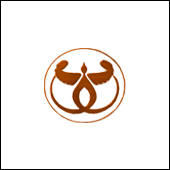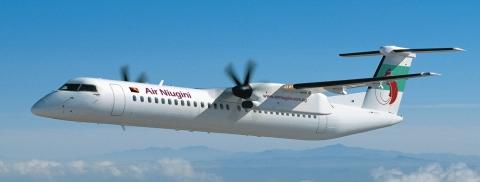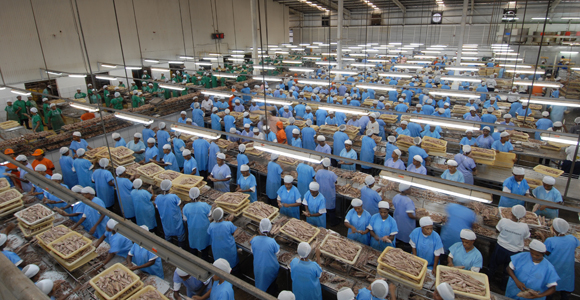
Minister for Public Enterprise and State Investment, Hon. Ben Micah, MP, has addressed the standing performance of Papua New Guinea’s State Owned Enterprises (SOEs) during the Mining and Petroleum Conference in Port Moresby. He also brought to light prospects the PNG government has in place to boost the performance of the SOEs.
Here are eight points summing up Micah's address:
- SOE’s Contribution to 2015 GDP
Given the drop in commodity prices, the presentation of SOEs has boosted significantly, considering past outcomes. Under the watch of Minister Micah, cumulative asset value of all SOEs vested within the General Business Trust managed by the Independent Public Business Corporation (IPBC) has expanded meaningfully from K5 Billion in 2012 to over K20 Billion presently. Reports have shown the increased contribution of SOEs towards PNG’s Gross Domestic Product have risen from 12 per cent in 2012 to 42 per cent in 2013, to over 50 per cent in 2014; and is anticipated to have contributed over 60 per cent this year. This is an improvement that Micah has much-admired.
- Reform for SOEs
In line with the government’s refurbishment of several operations taking place within the country, a reform of SOEs is another agenda raised by Micah. The pivotal point of this approach is to address the “failing state” of our SOEs and bring in needed reform and change to improve our SOEs to become the drivers of economic development and wealth creation for Papua New Guinea.
- Establishment of New Companies
Micah announced Kumul Consolidated Holdings (formerly IPBC) as the new company that is to chart the way forward to reform our SOEs. A new and independent entity to safeguard business and resource taxation regimes are consistent, and that SOEs delivering utilities, will lift their performance, and lift it significantly.
- SOE Policy Document
After 40 years of operating State Corporations, the PNG government has passed a new legislation policy on State Ownership and Participation in Business. This is the first of its kind and will be tabled in the next parliament sitting. The policy, according to Micah, defines the government’s intent in a comprehensible defensible framework to move forward with clarity, particularly in the mining and petroleum developments.
- Reasons For State Participation In Business
Of course the idea of the government taking an interest in business seems unruly to most men and women. What guarantee is there that services will not be held supreme to the development of the nation? The State owns 13 SOEs and several investments. Prior to 2012, their combined total fixed asset in the economy excluding NPCP and DataCo, is around 15 per cent but they contribute only 1.9 per cent to the GDP. This indicates that SOEs hold fixed asset that are “under-utilised and landlocked”.
- Considerations for SOE Improvement
With reference to the previous performance of the SOEs, the expectations for all state-owned companies are in essence; service delivery and profit generation. Other considerations highlighted by Micah are: Maximise shareholder values, Improve operational efficiencies, Improve customer focus, Improve corporate governance, Restructure ownership, Attract and retain qualified management, Improve community service obligations, State’s active participation in the extractive industries, Improve transparency in financial disclosures, Rehabilitate SOEs through recapitalization, Expected rate of return, Dividend policy, Environmental stewardship, Health and safety at workplace, Ethics and compliance, Combating corruption, Anti-Discrimination Policy and Research, Development and Competence building.
- Kumul Management Control System (KMCS)
Confirming proficiency, efficiency and quality output from the government, set to take effect through the companies proposed, requires monitoring and evaluation systems in place. Micah brought to light an effective Management and Control System that is to be adopted by these newly formed companies; this is the Kumul Management and Control System.
- The Way Forward
Partnership between state business and the private sector to enhance business and increase the revenue base of the country is the favourable way forward for PNG. It has been a long time coming, however, Prime Minister, Peter O’Neill, has instructed to make effective as early next year, mandatory for private sector companies to engage and partner with Landowner companies in all aspects of business. Landowners will be given the opportunity to form equal business partnerships with major projects around the country.
 A rise in ancient frontline tourism across a variety of international destinations has excelled attention on a key niche market with potential for Papua New Guinea, as the country begins preparations for a series of events commemorating the 75th anniversary of strategic battles fought during the Second World War.
A rise in ancient frontline tourism across a variety of international destinations has excelled attention on a key niche market with potential for Papua New Guinea, as the country begins preparations for a series of events commemorating the 75th anniversary of strategic battles fought during the Second World War.







 Bank of PNG has recently launched two working papers called Demand for Money in PNG and Estimating an Aggregate Import Demand Function for PNG in Port Moresby at the National Research Institute of PNG. The launching was attended by Bank of PNG Assistant Governor Dr. Gae Kauzi, PNG National Research Institute Director Dr. Charlies Yala and other reps from NRI, UPNG and Treasury department who set through a presentation from the BPNG working Papers authors explaining the fundamentals of those policies.
Bank of PNG has recently launched two working papers called Demand for Money in PNG and Estimating an Aggregate Import Demand Function for PNG in Port Moresby at the National Research Institute of PNG. The launching was attended by Bank of PNG Assistant Governor Dr. Gae Kauzi, PNG National Research Institute Director Dr. Charlies Yala and other reps from NRI, UPNG and Treasury department who set through a presentation from the BPNG working Papers authors explaining the fundamentals of those policies. The National Government will continue to build the country’s air transport sector because of the high dependence on air transportation by the people, says PM Peter O’Neill. Speaking at the welcoming reception of the brand new ATR- 72 aircraft for PNG Air in Port Moresby, Prime Minister O’Neill says the government is trying to subsidize the industry as much as possible within the confines of the funds they have available, but with the support of shareholders the government will continue to build the capacity of the air transport sector in the country.
The National Government will continue to build the country’s air transport sector because of the high dependence on air transportation by the people, says PM Peter O’Neill. Speaking at the welcoming reception of the brand new ATR- 72 aircraft for PNG Air in Port Moresby, Prime Minister O’Neill says the government is trying to subsidize the industry as much as possible within the confines of the funds they have available, but with the support of shareholders the government will continue to build the capacity of the air transport sector in the country. Korean tuna fishing firm Dongwon Industries has signed a $35 million deal with Papua New Guinea to build a new factory on the island. The new tuna plant will be built in the Morobe province in early 2016, and should furnish roughly 2,000 direct jobs and 4,000 indirect jobs. This will be the sixth tuna processing project to be built in the city of Lae.
Korean tuna fishing firm Dongwon Industries has signed a $35 million deal with Papua New Guinea to build a new factory on the island. The new tuna plant will be built in the Morobe province in early 2016, and should furnish roughly 2,000 direct jobs and 4,000 indirect jobs. This will be the sixth tuna processing project to be built in the city of Lae.




